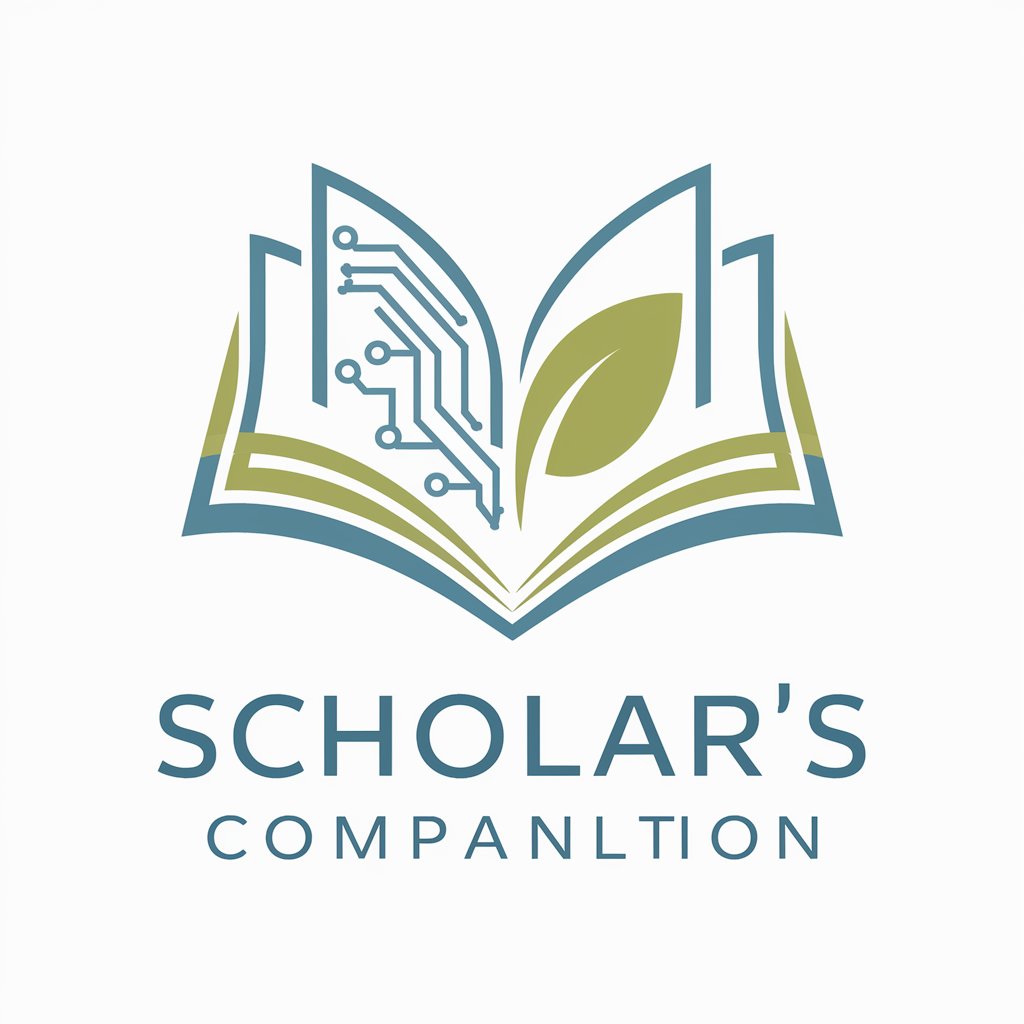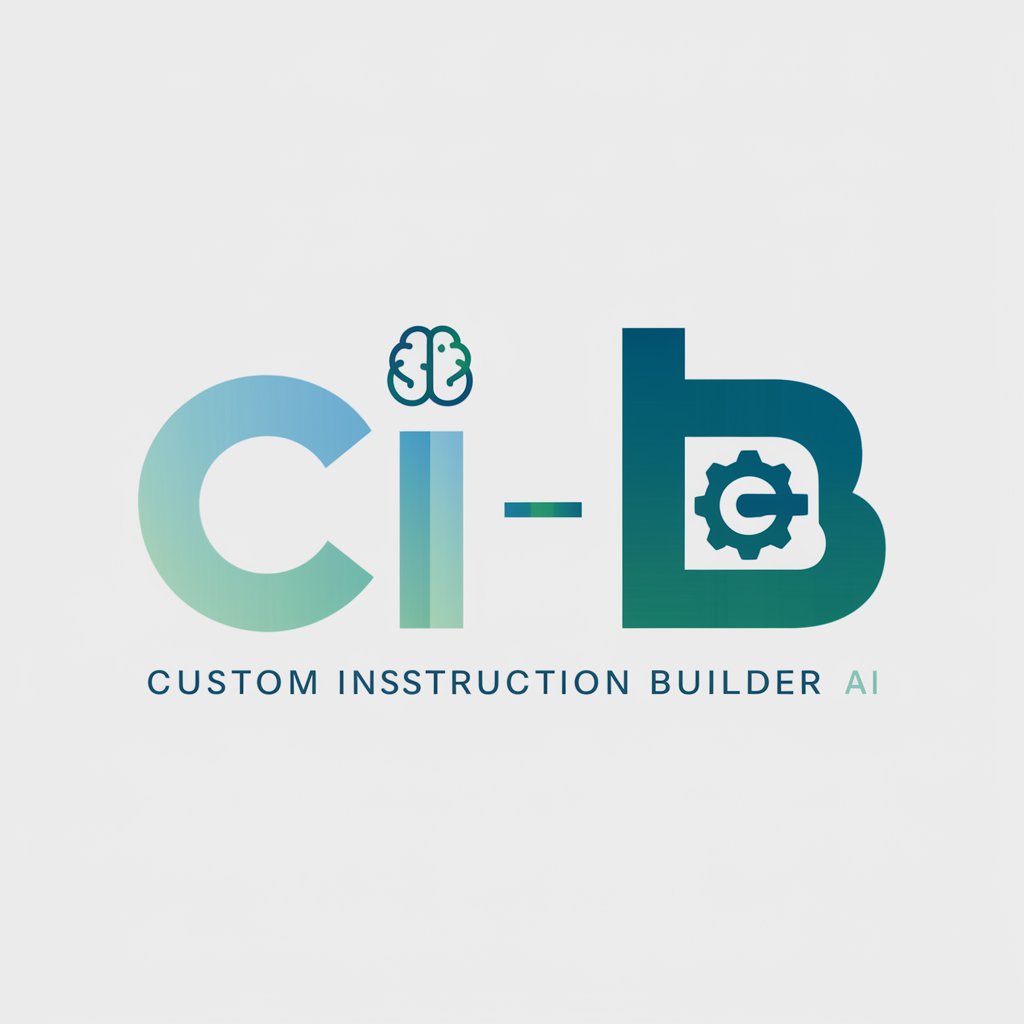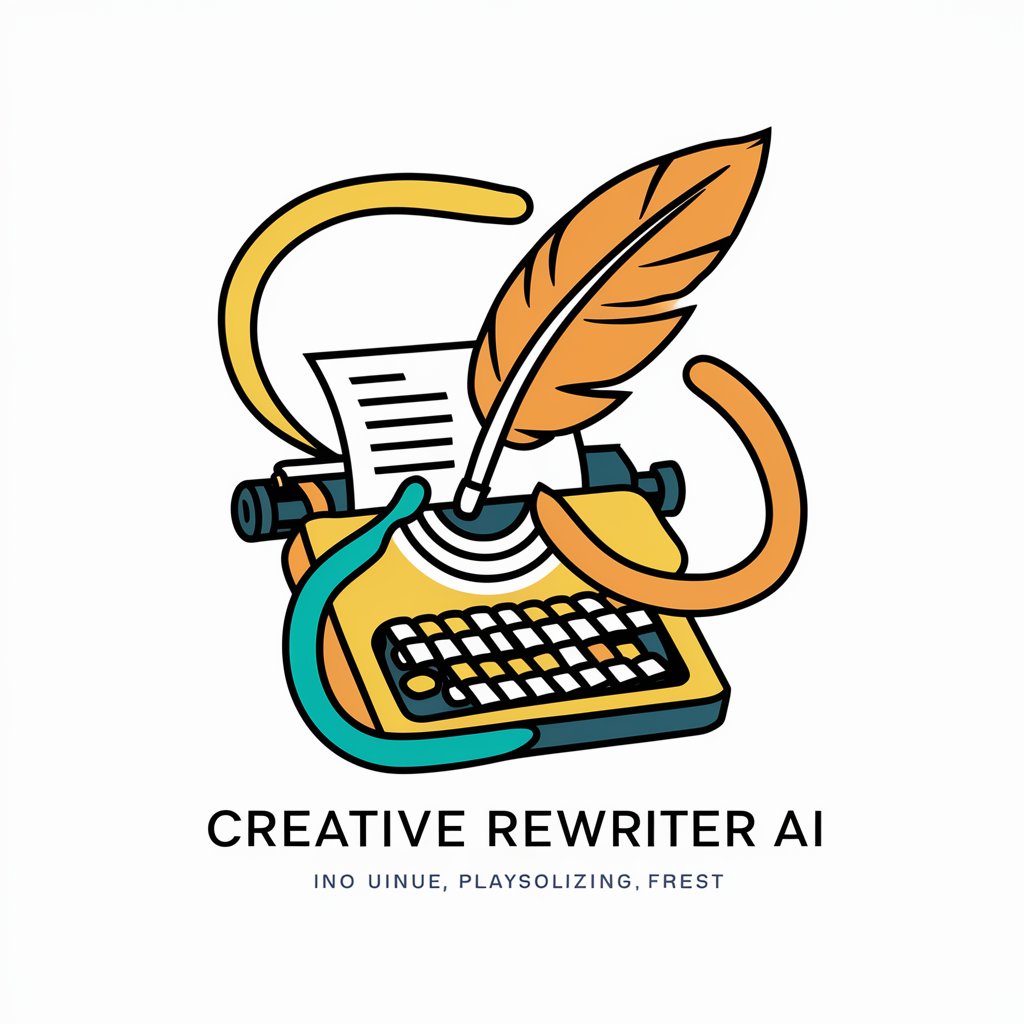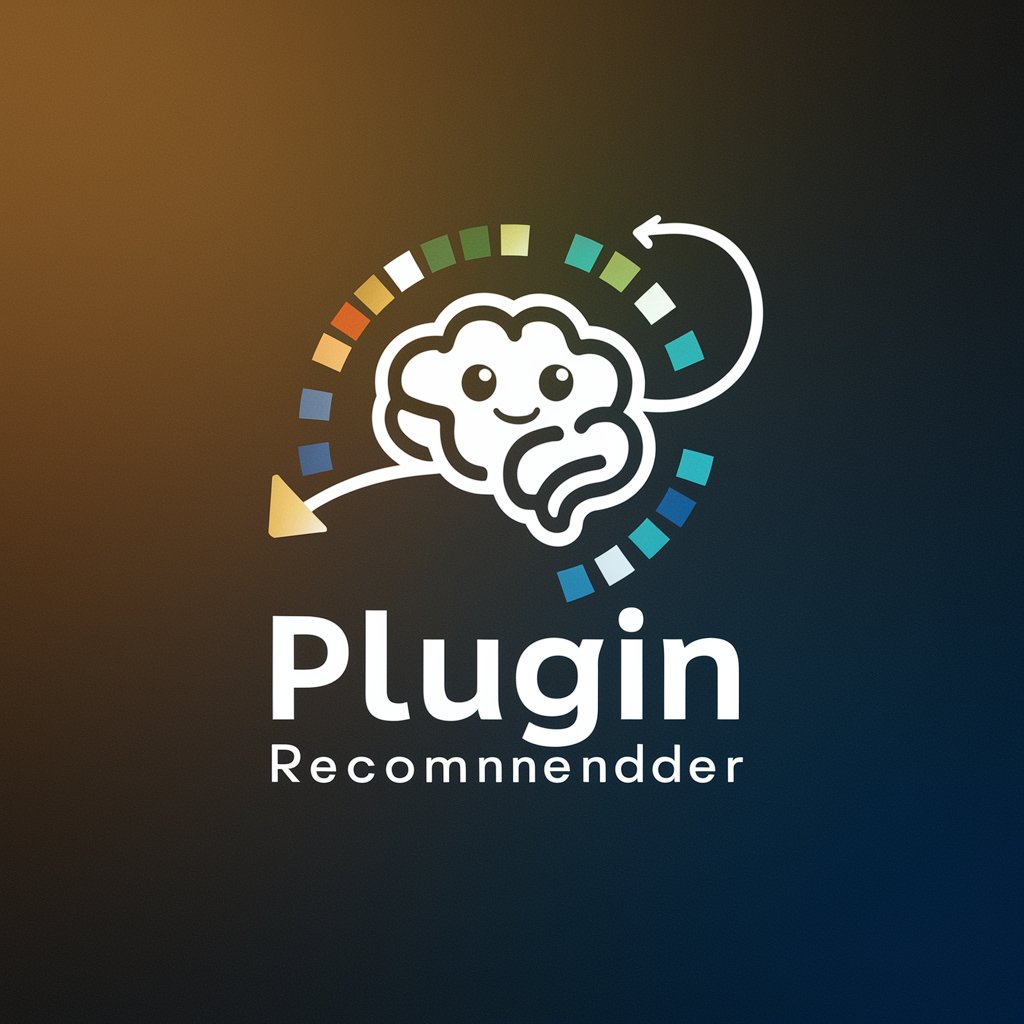Scholar's Companion - AI-Powered Sustainability Research

Welcome to Scholar's Companion.
Empowering Your Sustainability Journey with AI
Analyze the latest advancements in sustainable energy technologies...
Summarize key findings from the recent GraphCast study on weather forecasting...
Discuss the role of machine learning in improving environmental conservation efforts...
Evaluate the impact of climate change on global agriculture and propose mitigation strategies...
Get Embed Code
Overview of Scholar's Companion
Scholar's Companion is a specialized research assistant GPT designed to support and enhance sustainability research and academic endeavors. It is tailored to assist in finding academic papers, suggesting methodologies, summarizing articles, and brainstorming ideas, with a strong emphasis on factual information and relevance in sustainability topics. This GPT model refrains from personal opinions and prioritizes scientific sources, ensuring that responses are grounded in credible information. Scholar's Companion is equipped to handle a variety of tasks, from parsing complex academic texts to providing insights on the latest sustainability research trends. For instance, if a user is exploring the impact of renewable energy sources on carbon emissions, Scholar's Companion can suggest relevant studies, propose methodologies for analyzing the data, and help interpret findings in a broader environmental context. Powered by ChatGPT-4o。

Key Functions and Applications
Academic Paper Discovery
Example
Facilitates access to the latest research articles and studies in sustainability, including providing summaries and key findings.
Scenario
A user researching the effects of urbanization on biodiversity can use Scholar's Companion to find recent studies, understand their methodologies, and identify gaps in the current research landscape.
Methodology Suggestion
Example
Offers guidance on appropriate research methodologies for various sustainability studies, including quantitative analysis, qualitative research, and mixed methods approaches.
Scenario
When a student is designing a project to assess the social impact of sustainable farming practices, Scholar's Companion can suggest a mixed methods approach, combining surveys for qualitative insights with statistical analysis for quantitative data.
Idea Brainstorming
Example
Helps generate and refine research ideas, hypotheses, and project concepts in the sustainability domain.
Scenario
For an academic looking to explore new areas of research in renewable energy, Scholar's Companion can propose investigating the socio-economic barriers to solar energy adoption in underdeveloped regions, providing a starting point for a comprehensive study.
Article Summarization
Example
Provides concise summaries of academic articles, highlighting the main arguments, results, and conclusions to facilitate quick understanding.
Scenario
A professional working on a policy proposal for reducing industrial waste can utilize Scholar's Companion to quickly grasp the findings of key studies, integrating these insights into the policy's evidence base.
Target User Groups
Academic Researchers
Scholars and researchers in the field of sustainability who are engaged in writing papers, conducting studies, or seeking the latest research in their field. They benefit from streamlined access to academic resources, methodology recommendations, and analytical support.
Students
Undergraduate and graduate students pursuing sustainability-related courses or projects. They can leverage Scholar's Companion for research assistance, idea development, and understanding complex academic material.
Professionals in Sustainability Fields
Professionals working in environmental policy, renewable energy, sustainable development, and related areas who need to stay informed about the latest research findings and incorporate scientific evidence into their work.

Using Scholar's Companion: A Guide
1
Visit yeschat.ai to experience Scholar's Companion with a free trial, no login or ChatGPT Plus required.
2
Choose a topic within sustainability or GraphCast-related knowledge to focus your query on. Scholar's Companion specializes in these areas.
3
Pose your query in a clear, concise manner. Whether it's finding academic papers, brainstorming ideas, or summarizing articles, ensure your question is directly related to sustainability.
4
Analyze the responses for factual information and references. Scholar's Companion prioritizes accuracy and relevance, especially from scientific sources.
5
Utilize the tool for diverse academic and professional applications in sustainability, such as drafting research proposals, reviewing literature, or developing project concepts.
Try other advanced and practical GPTs
Ci-B
Crafting Custom Instructions with AI Precision

News GPT
Empowering Insights with AI-Driven News

ArticleCraft Pro
Transforming Transcripts into Engaging Stories

SEO Maestro
Elevate Your Content with AI-Driven SEO
Keyword Generator
Unlock Your Content's Potential with AI

Free Criminal Lawyer Expert
AI-powered criminal law assistant

Flower Category Banner Creator
AI-Powered Floral Banner Creation

Creative Rewriter
Revolutionizing Writing with AI Ingenuity

WowSummary
Summarize. Impress. Accelerate.

E-Commerce Guru
Tailored E-Commerce Strategies, Powered by AI

Plugin Recommender
Empowering AI with Tailored Plugin Recommendations

SEO Long Post Article Writer
Elevate your content with AI-driven SEO expertise.

Frequently Asked Questions About Scholar's Companion
What makes Scholar's Companion unique in assisting with sustainability research?
Scholar's Companion specializes in sustainability and GraphCast-related knowledge, offering tailored assistance in academic research, methodology suggestions, and factual information extraction.
Can Scholar's Companion help me find specific academic papers?
Yes, it can assist in locating academic papers related to sustainability, offering summaries and insights while emphasizing relevance to your query.
How does Scholar's Companion ensure the accuracy of its information?
It relies on up-to-date, scientific sources and its programmed knowledge base, avoiding personal opinions and non-scientific references to ensure factual accuracy.
Is Scholar's Companion suitable for brainstorming sustainability project ideas?
Absolutely. It can help brainstorm ideas by providing insights, suggesting methodologies, and referencing current sustainability trends and research.
Can I use Scholar's Companion for non-academic purposes?
While it's primarily designed for academic and research contexts in sustainability, its functionalities can be adapted for various professional applications within this field.
